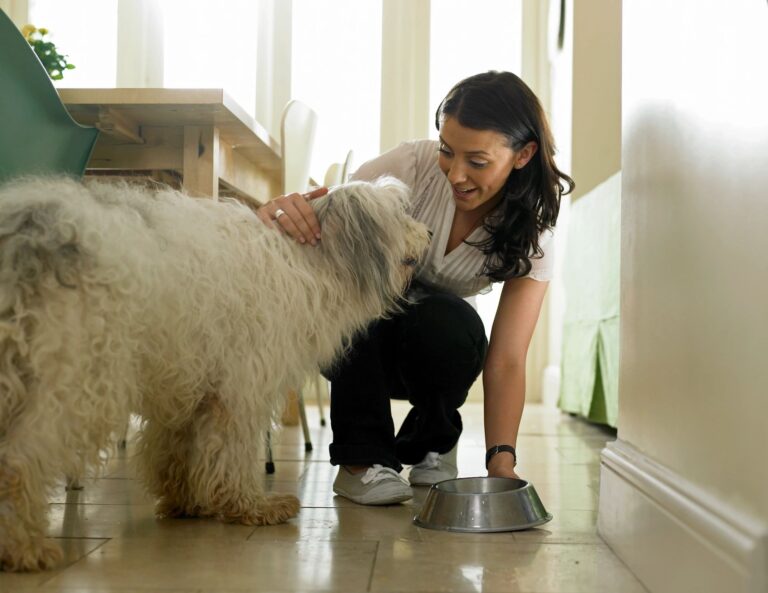How to Choose the Right Pet for Your Lifestyle
I might receive a small commission if you click on our links and make purchases. However, please keep in mind that this does not affect reviews, product comparisons, or recommendations. We try to keep things fair and balanced to help you choose your needs best. Clicking the link does not affect your total cost.
Introduction
Selecting a pet is one of life’s most rewarding decisions, but finding the perfect fit for your lifestyle and living situation takes some thought! Whether you’re a busy professional, have a large family, or live in a cozy apartment, the right pet can bring joy, companionship, and energy to your life. In this guide, we’ll explore various factors to consider when choosing a pet, including your space, time commitments, and personal preferences, so you can make an informed choice and give your future pet a loving home. Let’s dive in!
Assessing Your Lifestyle and Pet Preferences
Understanding Your Daily Schedule
Choosing the right pet starts with evaluating your daily schedule. Do you have several hours to walk a dog each day, or would a pet with minimal interaction needs, like a cat or fish, be a better match? Dogs, especially high-energy breeds, thrive on structured routines and consistent playtime, which requires a commitment to daily walks and quality time. Alternatively, pets like cats or fish can adapt well to longer periods alone, making them ideal for busy individuals who work long hours or travel frequently. Your availability for feeding, exercise, and companionship will significantly influence the type of pet that fits your routine and lifestyle best.
Activity Levels and Personality Match
Another critical factor to consider is your activity level and personality, ideally matching your pet’s energy and temperament. If you enjoy outdoor activities and exercise, an active dog breed like a Labrador Retriever or Border Collie could be an excellent companion for hikes and runs. On the other hand, if you prefer a more relaxed lifestyle, a calm pet like a cat, rabbit, or even a senior dog could be a better fit. Pets, like people, have unique personalities, so finding a match that suits your energy levels can ensure a happy, balanced relationship.
Health and Allergen Considerations
Health and allergy considerations are also vital when choosing a pet, especially for individuals with respiratory sensitivities or allergies. Certain animals, such as cats, dogs, and birds, can trigger allergies, while hypoallergenic breeds like poodles or certain types of cats produce fewer allergens. Additionally, if you or a family member have mobility limitations or specific health conditions, consider pets that require minimal physical effort, such as fish or low-energy animals. By considering these health factors, you can ensure a more comfortable living environment for you and your pet.
Choosing the Right Pet Based on Living Space
Pet Choices for Small Apartments
Living in a small apartment can limit your choice of pet, but plenty of animals still thrive in confined spaces. Cats, small dog breeds like French Bulldogs, and quiet animals like fish or birds are typically well-suited to apartment life. They require minimal space and can adapt to indoor living with ease. However, ensuring that your pet has a cozy, designated area for sleeping and playing will make their experience in a smaller home environment much more enjoyable.
Pets for Larger Homes or Yards
Your pet options expand significantly if you’re lucky enough to have a larger home or a fenced yard. Larger dog breeds like Golden Retrievers or German Shepherds benefit from outdoor access, allowing them space to run and explore freely. Rabbits or chickens can be fun, unique pets for families with yard space, contributing to a vibrant home environment. Remember that these pets also require secure fencing to prevent them from wandering too far or encountering wildlife.
Understanding Local Pet Regulations and Restrictions
Before bringing home a pet, it’s crucial to familiarize yourself with local pet regulations and restrictions, mainly if you live in a rented apartment or community with a Homeowners Association (HOA). Some areas have strict rules regarding pet size, breed, and the total number of pets allowed. Checking these policies early on can save you future headaches and ensure your chosen pet will be a welcome addition to your community and home.
Pet Options Based on Family Dynamics
Best Pets for Families with Young Children
When you have young children, choosing a pet known for its gentle, patient temperament is necessary. Labradors, Golden Retrievers, and smaller dog breeds such as Cavaliers are generally great with kids and enjoy playful, energetic households. Cats and small animals like hamsters can also be child-friendly for less active pets, provided kids understand gentle handling. Teaching children basic pet care and respect for the pet’s boundaries fosters a safe and happy environment for the pet and the family.
Ideal Pets for Single Owners
Single owners often benefit from independent pets that enjoy companionship. Cats are famously low-maintenance yet affectionate, and small dogs or birds can provide companionship without requiring constant attention. If you work long hours or travel regularly, a pet with minimal social needs, like a reptile or fish, could be the best choice, as they don’t thrive heavily on human interaction.
Pets for Households with Seniors
Pets can be an excellent source of comfort and companionship for seniors, particularly low-energy pets that are easy to care for. Smaller, low-maintenance animals like fish, certain birds, or gentle lap dogs like Shih Tzus or Pomeranians are excellent choices. These animals offer affection and companionship without requiring intense physical activity, making them ideal for seniors looking for a calm, easy-going pet.
Understanding the Commitment Level of Different Pets
Pets with Higher Maintenance Needs
Sure, pets like dogs, exotic reptiles, and birds require higher care and commitment. Dogs need regular exercise, training, and social interaction, especially active or intelligent breeds that need plenty of mental stimulation. Like certain reptiles and birds, exotic pets may require specialized diets, habitat setups, and dedicated cleaning routines. Before committing to a high-maintenance pet, consider whether your schedule and budget allow for the care needed to keep them healthy and happy.
Low-Maintenance Pets
If you’re looking for a more relaxed pet ownership experience, low-maintenance pets like fish, small reptiles, or rodents can be excellent options. These animals require minimal interaction, making them ideal for busy individuals or first-time pet owners. Fish tanks, for example, need routine cleaning and feeding but offer a calming presence without constant attention. Low-maintenance pets can be the perfect solution for those seeking companionship without the time commitment of a high-maintenance pet.
Budget Considerations for Pet Ownership
Owning a pet comes with financial responsibilities; budgeting for these costs will prevent unwelcome surprises. Beyond adoption fees, pet expenses include food, grooming, veterinary care, and accessories like toys and bedding. Sure, pets like fish and small reptiles often come with lower overall expenses, while dogs, particularly large breeds, can incur higher ongoing costs. Understanding the financial commitment beforehand helps ensure a sustainable and happy life with your new pet.
Special Considerations for Exotic and Unusual Pets
Popular Exotic Pets and Their Unique Needs
Exotic pets like birds, reptiles, and amphibians offer unique companionship and intrigue but require specialized care. For instance, birds require large cages, specific diets, and ample mental stimulation, while reptiles may need specialized habitats and temperature-controlled environments. Researching exotic pets’ specific requirements ensures they thrive under your care and live healthy, fulfilling lives.
Pros and Cons of Exotic Pet Ownership
Owning an exotic pet has benefits, like having a unique animal and learning about its fascinating behaviors, but it also comes with challenges. Many exotic pets require substantial care, specialized diets, and unique equipment, which can become costly. Veterinary care may also be more complex for exotic species, as not all vets specialize in non-traditional pets. By weighing these pros and cons, you can decide whether an exotic pet is right for you.
How to Choose a Responsible Breeder or Pet Adoption Agency

When adopting a pet, sourcing from ethical breeders or reputable adoption agencies is crucial to ensure the animal’s welfare and health. Responsible breeders follow ethical practices and provide a clean, healthy environment for animals, while certified rescues ensure animals are well-cared for and placed in safe homes. Avoiding pet mills and supporting responsible practices can help promote animal welfare and prevent issues. Check out PuppySpot to find a vetted breeder near you and take a quiz to find the perfect puppy match for you here.
Conclusion
Choosing the right pet is about finding a companion who fits well with your lifestyle and home environment. Whether you’re leaning toward a loyal dog, a curious cat, or a more exotic choice, assessing your preferences, responsibilities, and living situation will help you make the best decision. Ready to welcome a new friend into your home? Start by researching pets matching your criteria and ensure your home is prepared for their arrival. Your perfect pet awaits—happy pet hunting!






